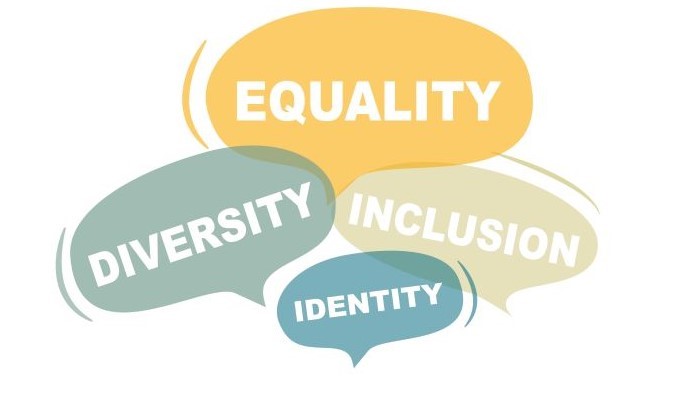Our DEI Journey
We’re committed to promoting an equitable and inclusive work environment that is healthy, discrimination-free, and recognizes and respects the personal worth, dignity, and diversity of our clients, staff, volunteers, students, and broader communities.

Principle of Inclusivity
The Society promotes an equitable and inclusive work environment that is healthy and discrimination-free and recognizes and respects the personal worth, dignity and diversity of the clients, staff, volunteers, students, and broader communities it supports. The Society strives to integrate an accurate portrayal of the roles and contributions of all groups who have been underrepresented historically; identify how bias, stereotyping, and discrimination have limited the roles and contributions of individuals and groups, and how these limitations have challenged and continue to challenge our society; encourage all members of the educational community to examine assumptions and prejudices, including, but not limited to, racism, sexism, and homophobia, that might limit the opportunities and growth of clients, care partners and employees.
We respect the values and beliefs of all our staff, clients, students and volunteers, and Board members. Our Mission, “to alleviate the personal and social consequences of Alzheimer’s disease and other dementias and to promote research” is aimed to reach all individuals and recognizes that the Society and its clients are not homogenous; rather, diversity is welcomed and celebrated. This means acknowledging the worth of every individual and their value to the community. We follow person centered principles in all our programs and services. Moreover, we also adhere to the Canadian Charter of Rights for People Living with Dementia, which ensures:
- People with dementia know their rights
- Empowerment for people with dementia to ensure their rights are protected and respected, and
- People and organizations that support people with dementia know these rights
Inclusivity within the organizational context is comprised of a strategic process of identifying and eliminating barriers and implementing change based on the recognition of power imbalances and privilege, and a realization that many people do not have equitable access to services and supports within the community. We recognize that an individual’s family and friends, community, social, cultural, environmental, and spiritual context shape their experiences and as such we work within this context.
The Society actively participates in awareness training and considers all perspectives to be inclusive when developing, evaluating, and modifying programs and services offered to its clients. Wherever possible, active, and meaningful involvement of people who are reflective of the diverse groups within the community is used in programs and services processes. Regular review of inclusivity issues is conducted, with a goal of continuing to improve in our efforts to best reach all clients and best support all staff, in the least intrusive and most welcoming manner possible.

Diversity, Equity, and Inclusion
At Alzheimer Society of Toronto (AST), we are committed to an equitable recruitment process. In all of our job descriptions we are transparent about our commitment to our equitable recruitment process and disclose the salary and hiring ranges.
Through our recruitment process, applicants shared with hiring leaders have self-identifiers removed to reduce unconscious bias and include EDI focused questions to all interview guides. Any accommodations required are made throughout the recruitment process.
AST is also committed to actively recruiting staff, volunteers and Board members with diverse backgrounds representing the communities of Toronto.
Programs and Services
AST provides informational videos in different languages on our YouTube Channel. We also provide our brochures and information sheets in multiple languages such as French, Chinese, and Punjabi.
We offer LGBTQ2s+ Support Group for caregivers who identify as LGBTQ2s+ or who are caring for someone who does. This program is available Province wide and is offered online.
Initiatives started to build EDI in Organizational Culture
AST is committed to ensuring that our EDI principles become part of who we are, not just something that we do. We have taken the following initiatives on our journey to achieving this.
- We begin all staff meetings with a land acknowledgment statement.
- Cultural days of significance are highlighted and acknowledged each month to all staff.
- Established EDI committee meets every month discussing issues relating to EDI and bring forward recommendations to the leadership team for action and engages all staff in EDI learnings.
- Representatives of the AST EDI committee are also part of the Alzheimer Society of Ontario EDI Committee.
- AST leadership is committed to ensuring that all staff are given educational opportunities such as Racial Equity Training.
